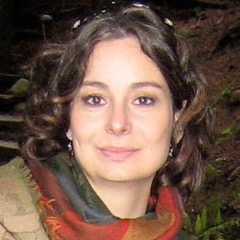Current Research
- Where the Wild Things Are: Imagination, Identity and un-Bordering in the Republic of Macedonia
- Covering among other things: informal economy; ART, IVF and Silicon Testicles; Hunza Royalty; Bulgarian Passports; Toše, Proeski Saint and Idol.
Past Research
- Building Bridges for Development - Diaspora from Macedonia in Canada as a Potential Resource
- Religion as political discourse of exclusion in Macedonia or: How Religion promises the way into Europe and out of the Balkans
Ph.D. Thesis T'ga za jug - Waiting for Macedonia:The Changing World of a Group of Young Female Engineers in the Republic of Macedonia
Supervisors: Dr. P. Loizos London School of Economics.
Examiners: Dr. F. Pine, Department of Anthropology, Cambridge University; Dr. W. Bracewell, Director of the School of Slavonic and Eastern European Studies, London.
Abstract: My thesis, based on 27 month of fieldwork between 1988-1996 in the Former Yugoslavian Republic of Macedonia, uses data from a group of young, female, urban Macedonian computer engineers to examine 1) the construction of identities through everyday life in the specific circumstances of contemporary Macedonia; and 2) the implications for Macedonian cultural and national identity. I argue that for Macedonia the disintegration of Yugoslavia meant the loss of 'Europe' and a forced reversion to 'the Balkans'. This had a great impact on how people viewed and understood their agency and identity, which in turn explains today's ethnic tensions.
M.Sc. Thesis Female Cannibalism in Papua New Guinea
Examiner: Dr. James Woodburn (London School of Economics).
Abstract: In Papua New Guinea the imagery of cannibalism can give us new insights into a gender identity in which gendered substances are exchanged. Culture creates boundaries that imply division, though "sameness" is experienced. This social experience is projected onto the body. In the act of cannibalism, substance and power are exchanged, and women and men cooperate for the common goal of transcendence. The differences between the sexes, then, cannot be understood within the framework of hierarchy. Gender identity in Papua New Guinea is only a momentary condition of a person, determined by the quantity of gendered substances with which a person has contact.
